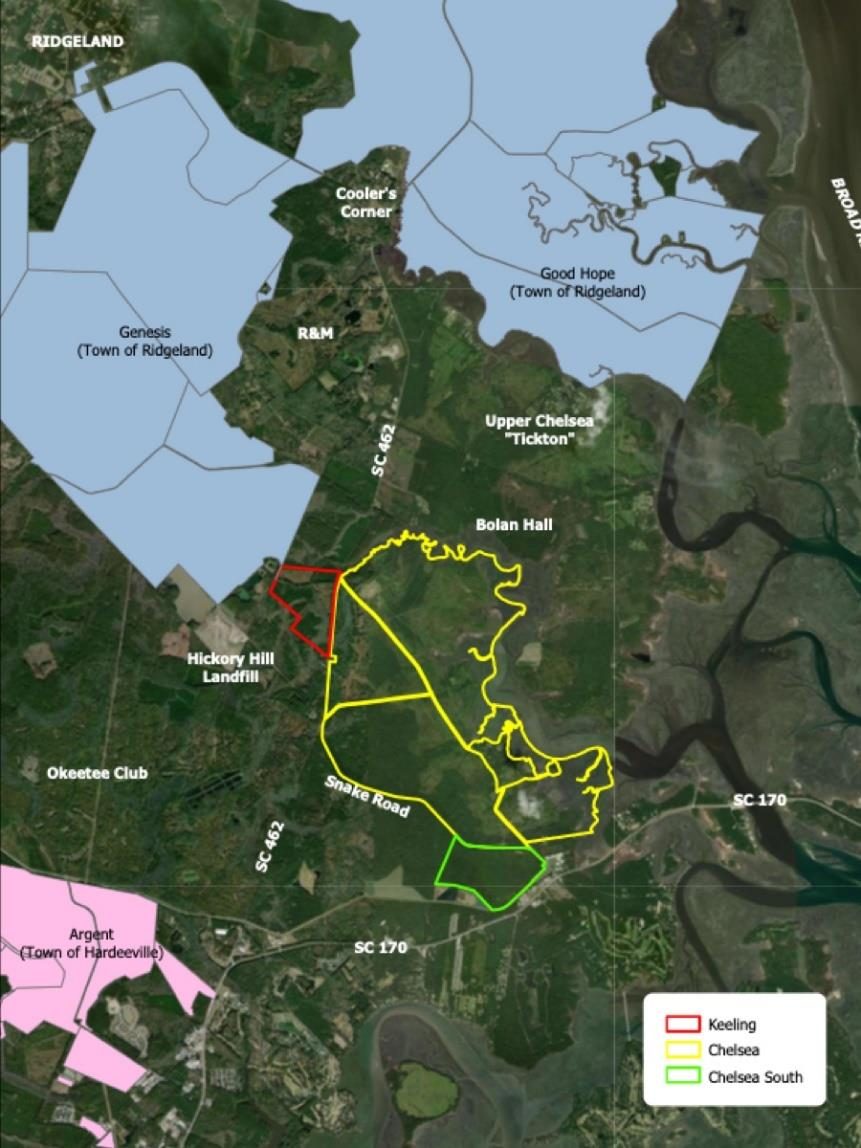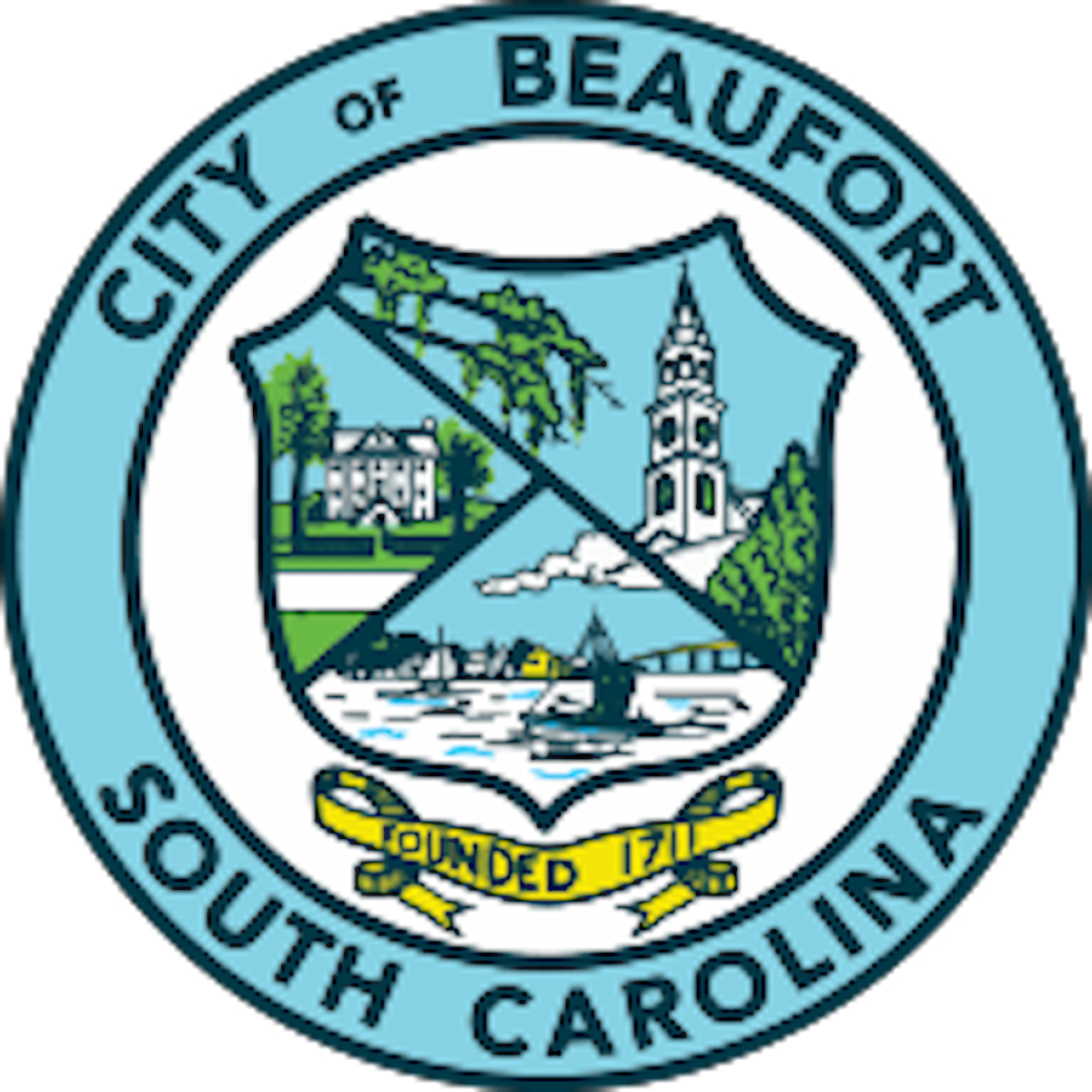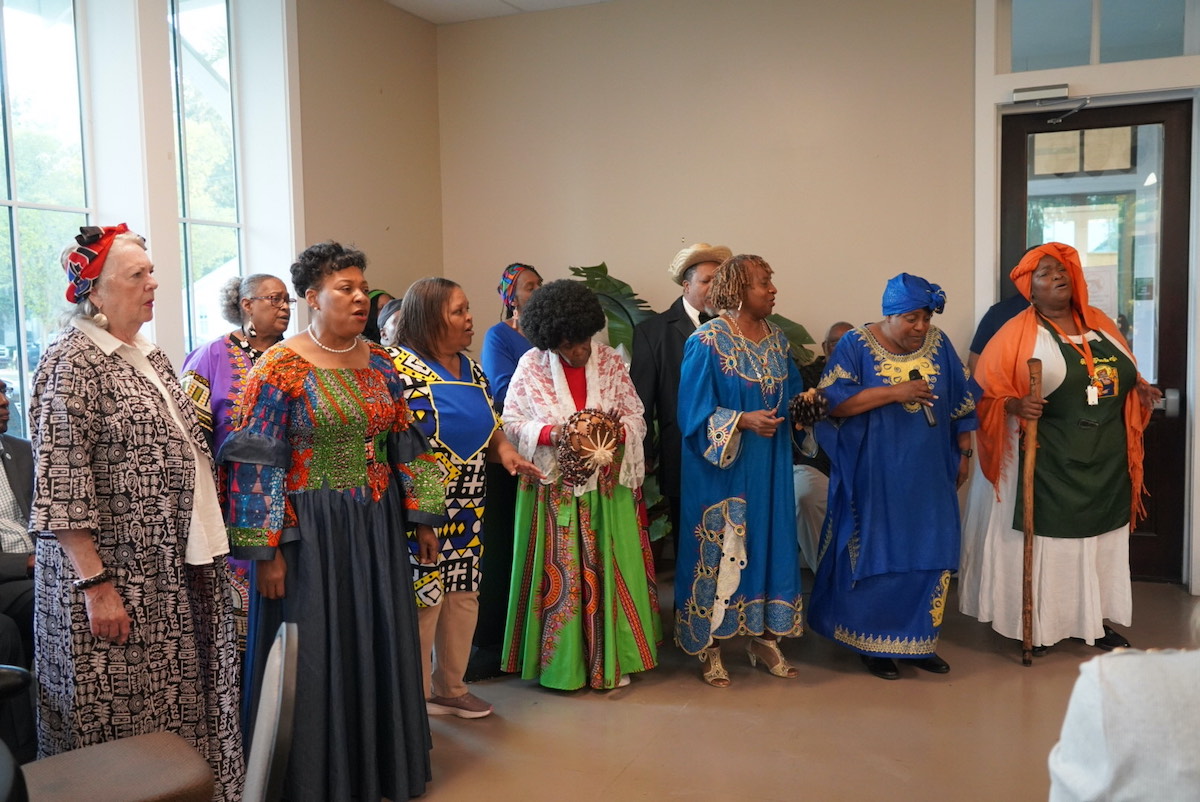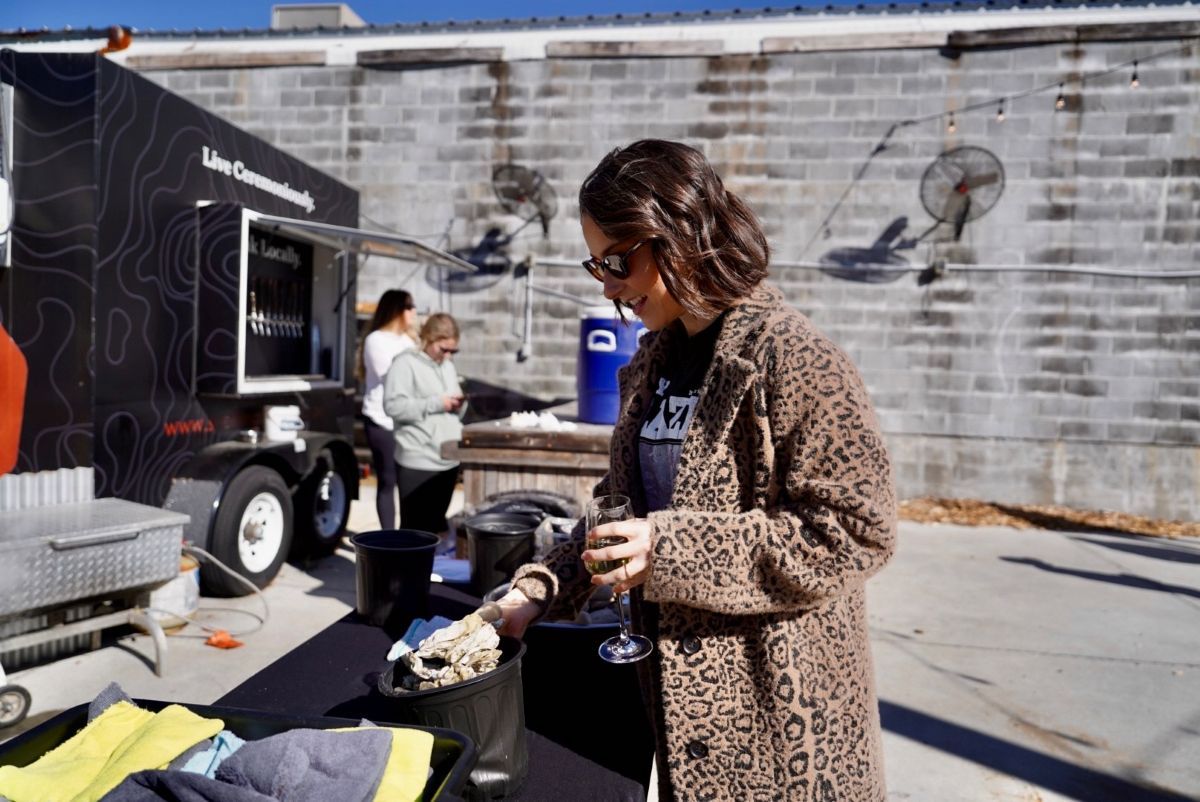Town of Ridgeland council postpones annexation vote
By Scott Graber
The Island News
In the last days of March 2024, the Town of Ridgeland quietly dropped an item from its April 4 Town Council agenda. It would not be voting in the annexation of 3,000 acres of woodlands, wetlands and pine forests that had once been part of Chelsea Plantation.
Two-hundred ninety-one acres acres of this vast, maybe-to-be-annexed acreage is called “Chelsea South” and is scheduled tor 438 single-family dwellings along with 269 multi-family units and 384,000 square feet of mixed use commercial and warehousing.
Until its decision to cancel the annexation vote, there appeared to be almost unanimous agreement on Town Council on bringing the 3,000 acres into the Town. In previous votes, only Council Member Libby Malphrus was reluctant to approve the petition.
But public opinion, led by the grass roots organization “Keep Chelsea Rural” and the South Carolina Coastal Conservation League, was largely opposed to this effort to extend Ridgeland’s town limits northward toward Bluffton.
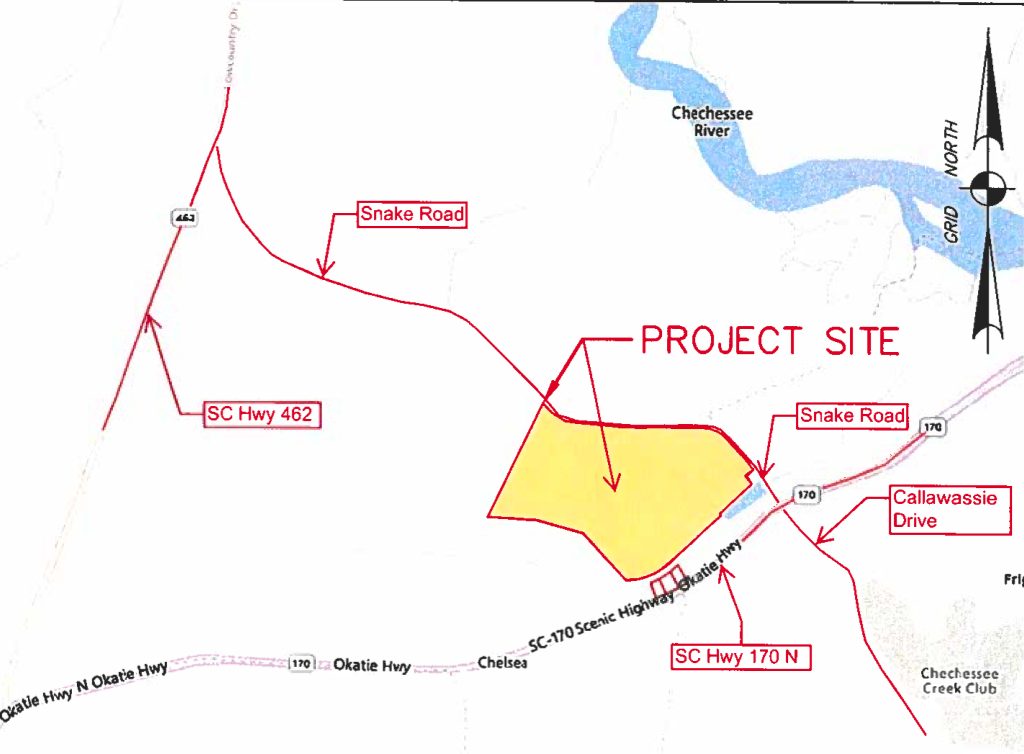
“There was nobody in the Town who wanted this annexation to happen,” said Thayer Rivers, formerly a House Member who represented Jasper County in the General Assembly. Rivers, grandson of Captain Mike Rivers who was Mayor of Ridgeland when Jasper County was founded in 1912, spoke-up against the annexation saying, “Vox Populi Vox Dei — the voice of the people is the voice of the Gods”
It appears the primary reason the Town shelved its vote on the annexation petition was Section 4-1-170 of the South Carolina Code of Laws. That text gives S.C. counties the authority to create multi-county business parks. And, in 2020, Jasper County did put two tracts into this new classification, one of which included a part of the 291 acres of Chelsea South.
Once Jasper County put a part of this tract into the Multi-County Business Park classification, any tax revenue generated by the “park” is transmuted into “fee revenue” giving Jasper County control over the allocation of these revenues.
The fact that Town of Ridgeland will lose control over these tax revenues seems to be the reason that changed the minds of Town Council, at least in the short run. In this connection, The Island News reached out to the Town of Ridgeland for comment. Town Administrator Dennis Averkin responded by saying, in part, “As pertains to the Jasper County MultiCounty Industrial Park, there are many questions that remain unanswered with respect to ad valorem tax revenues in Chelsea South. You are certainly correct that Jasper County has additional discretion. Given the uncertainty that surrounds this issue and the uncertainty as to what the County’s ultimate intentions may be, it is certainly my impression that the town council prefers to gather more information before additional steps are taken.”
The Island News also reached out to the developer, Michael Quinley, who said that the Chelsea Development Team had asked the Town of Ridgeland for more time “so we can consider all options. As we do so we will also be working to understand why Jasper County put some of the Chelsea Property into a multi- county development park and what the designation means for the property in the future. We have reached out to Jasper County officials to request a meeting and we are waiting to hear back.”
While Chelsea South’s development future may depend on the annexation tug of war between Jasper County and the Town of Ridgeland, another entity may hold even more sway between what happens to the land.
Beaufort Jasper Water and Sewer Authority (BJWSA) was formed in the 1950s when it was discovered that many of the freshwater wells in the County were too salty to drink. Beaufort’s officials — believing the loss of fresh water could jeopardize the continued operation of Parris Island and the Marine Corps Air Station — went to the United States Navy for financial help.
In 1962, work was completed on an 18-mile canal which now brings water from the Savannah River to the Chelsea Treatment Plant that is just across Snake Road from the Chelsea South tract.
Several weeks ago The Island News learned (at a BJWSA presentation) that The Chelsea Treatment Plant has a 24-million-gallons-a-day capacity; and a second freshwater treatment facility near Purrysburg, S.C., has a 15-million-gallons-a-day capacity — soon to be increased by another 30 million gallons a day.
It seems there is plenty of drinking water to slake the thirst of the exploding population of newly arrived, well-pensioned retirees in Beaufort and Jasper Counties.
But taking care of the sewage generated south of the Broad River is another matter.
Dean Moss, former General Manager at the Authority gave The Island News a tutorial that started off with the Cherry Point (sewage) treatment facility that is located about 5 miles from the Chelsea South project. Hooking up to that plant will eventually involve larger pipes and enhanced infrastructure.
At the moment, the “capacity” at Cherry Point, and the expanded capacity that is now in the works, is spoken-for by agreements with existing developers. This means that BJWSA will need to expand Cherry Point’s capacity beyond what it is now and what it has plans to build, all of which will cost the Authority many millions of dollars.
There is another constraint.
In the past, BJWSA piped much of its treated wastewater effluent back to the various golf courses in the Bluffton/Okatie area where it was sprayed on the long, well-barbered fairways. This still happens.
However, the bulk the Authority’s wastewater effluent is piped from Cherry Point to a place in Jasper County called “Great Swamp” where as much as 7 million gallons a day are sprayed. Recently, BJWSA realized that it would need more than this 7 million gallons of wastewater discharge and it applied to the S.C. Department of Health and Environmental Control (DHEC) for a permit allowing additional discharge into this wetland.
This request was not granted – it is still pending – and Moss believes discussions are on-going about how much treated wastewater BJWSA will be allowed to off-load into “Great Swamp.” As a result, here is uncertainty on this issue, how it effects the Chlesea South development, and consequently, uncertainty about other yet-to-be-planned developments in Beaufort and Jasper County.
Scott Graber is a lawyer, novelist, veteran columnist and longtime resident of Port Royal. He can be reached at cscottgraber@gmail.com.

